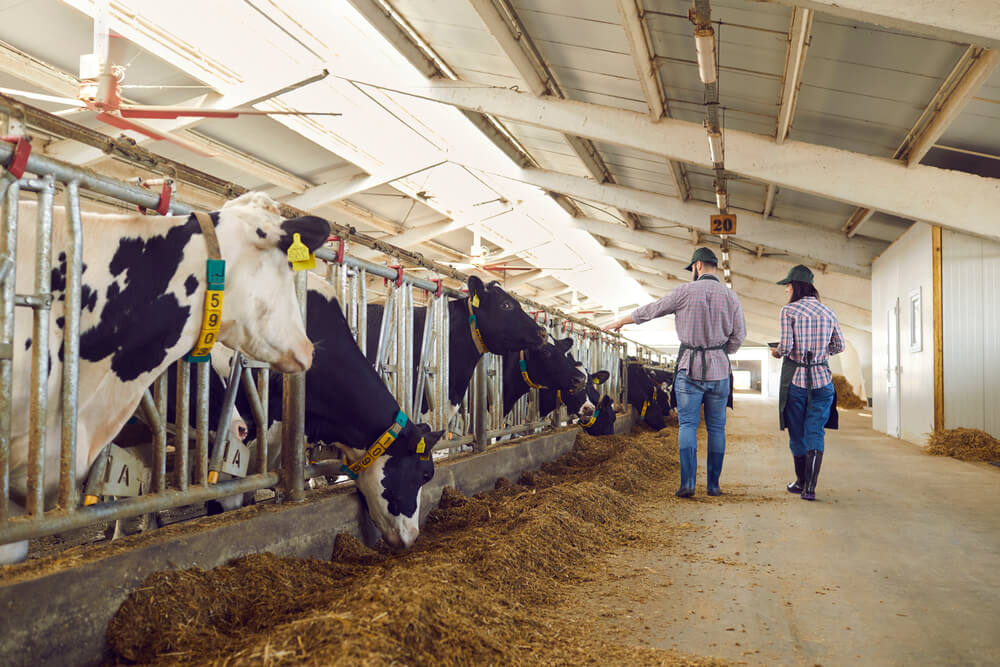Why England’s farm inspectors are launching a war on duplication
Ensuring that England’s agricultural sector complies with national and EU regulations is a complicated task – but smart technology for inspectors could revolutionise the process
FARM INSPECTIONS
Farm inspections are complex, costly and time-consuming. From controlling animal epidemics such as Bovine TB and swine fever to protecting woodland and checking up on animal welfare, England’s agricultural inspectors have a wide-ranging remit.
They carry out some 150,000 visits a year [pdf] at tens of thousands of sites to check that farmers are complying with agricultural rules laid out in a thicket of 172 Acts of Parliament.
Farmers complain that inspections are sporadic and uncoordinated. They face visits from five separate bodies that are part of Defra, as well as from local councils, and they are subject to a range of punitive fines for rule breaches.

FINDING BETTER WAYS
The search is on to find better ways of running the inspection regime. One solution could be to implement an overarching software system to coordinate visits, where data about farms is stored centrally and farmers can be advised electronically on the steps they need to comply with regulations. Sweeping changes to the inspection regime are imminent. A new report commissioned by environment secretary Michael Gove recommends a wholesale shake-up of farm regulation.
SINGLE FARM REGULATOR
After a year-long investigation, Dame Glenys Stacey published the Farm Inspection and Regulation Review [pdf] in December. She proposes creating a single farms regulator to replace the work of the five Defra bodies and local councils. This single watchdog would carry out more streamlined inspections and offer farmers support and guidance rather than fines.
Her report reveals the complexity of the farm inspection regime as regulators with overlapping duties all carry out their own checks. Environment Agency inspectors check on how farms protect and enhance the environment. The Animal and Plant Health Agency controls diseases and pests in animals and plants, while the Rural Payments Agency supervises the EU’s Common Agricultural Policies in England. Natural England looks to ensure the preservation of the natural environment and the Forestry Commission seeks to protect trees and woodland. Local authorities are responsible for checking on animal health and welfare.
No wonder inspections often duplicate previous visits. An analysis carried out by Defra of farm visits in the north of England found that an inspector travelled for two hours to undertake a 30-minute inspection. But he was unaware that four other inspections were carried out that day within a five-mile radius. Stacey argues that with better coordination, inspections could be carried out in a more cost-effective and efficient manner.
AUTOMATED WORK SCHEDULING AND CASE MANAGEMENT SOFTWARE
One way of greatly improving the inspection regime is through central, automated work scheduling and case management software. Using such a system, a regulator would store a list of all the farms that need to be inspected, the regulatory aspects that need examining and the history of inspections for each farm. The system would also carry data on the entire workforce of inspectors, where they operate, where they travel from, their expertise and the areas of regulation they specialise in. An algorithm would schedule inspectors’ visits in the most efficient way. This would help avoid overlapping inspections and uncoordinated visits in the same area.
Ollie Watson, a director at the technology and consultancy company CACI, which offers the Cygnum work scheduling and case management system, believes agricultural regulators could be transformed through an automated inspection regime. “Defra and its agencies rely on inspectors, officers and assessors in the field to make sure farmers are complying with ever-changing rules,” he says. “A joined-up, centralised digital strategy could provide real benefits. Farm inspectors could adopt a technical solution in the same way that the market they inspect is adjusting to rapid technological change.”
An automated system can be programmed to advise when a further inspection is needed based on business rules. Inspectors could access details about farms and their inspection record through mobile apps. “There is a lot of scrutiny on how public money is spent, so being able to demonstrate transparency of process and improved efficiency should be important.” He believes that automating the process would reduce the chances of failures and errors considerably, for instance, by generating a schedule to make sure the right inspections are carried out when they are needed. “There may be rules about how often checks should be made on different aspects of farming based on results of previous inspections that need to be accounted for. Programming these into a scheduling engine means they are never overlooked”. Additionally, at some organisations case data can be quite disjointed with information stored in different locations and in some cases individuals’ heads. “This can lead to human error, wasted time and to not getting the right information or outcomes even though the data is available,” he says. “A software workflow system can be programmed to match the exact processes casework needs, alerting and prompting, and presenting the tasks and data an inspector requires at the right time, which can really help when you are dealing with lots of complex cases.”
There is clearly a quality and consistency benefit with this approach the more it is adopted, with actual outcomes being analysed against historical recommendations made, which helps assess quality of the regulation itself.
UK agricultural rules will change as we leave the EU, and along with them the rules and systems governing agricultural inspections. Bringing on board new technology to coordinate and make visits easier would go a long way to improve the regulatory regime.
Find out more about Cygnum, our work scheduling and case management system.